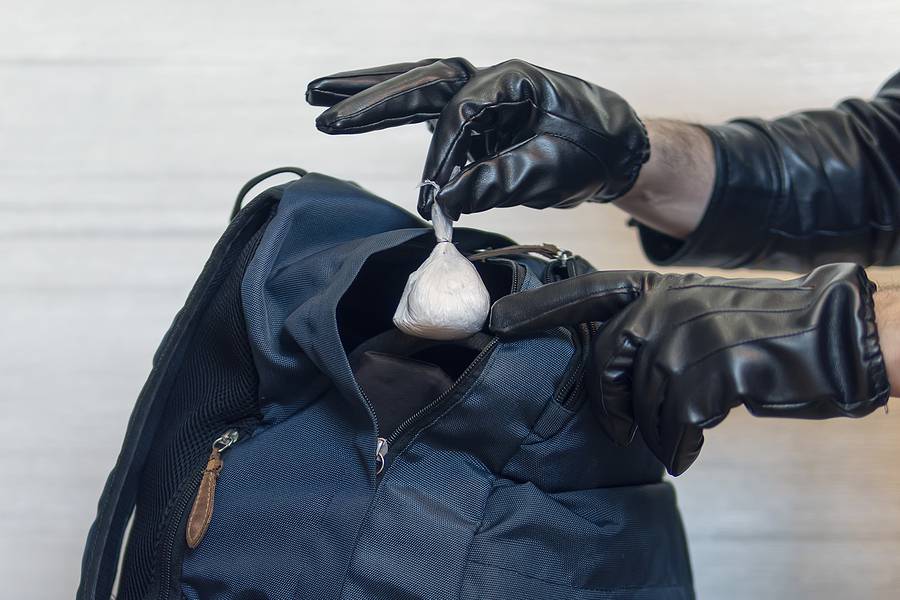If you or a loved one have been arrested for opioid possession in Frisco, you should reach out to an experienced criminal defense attorney as soon as possible. The penalties for opioid possession are severe and can be life-changing. Attorney Philip D. Ray can explain the potential penalties you face and fight to have the charges against you reduced or dropped.

What Penalty Group Do Opioids Fall Under in Texas?
The Texas Controlled Substances Act splits controlled substances into four categories called penalty groups. The group that a drug falls into plays a large role in the potential penalty. The controlled substances in Penalty Group 1 include most opiates and opium derivatives, such as heroin, fentanyl, oxycodone, methamphetamine, and morphine. Texas considers the drugs in Penalty Group 1 the most dangerous, and charges involving Penalty Group 1 drugs are penalized the most severely.
What are the Penalties for Opioid Possession in Texas?
The penalty for opioid possession depends primarily on the amount of drug that the defendant possessed.
• Less than one gram. The crime is a state jail felony, punishable by a state jail sentence of not less than 180 days or more than two years.
• At least one gram but less than four grams. The crime is a third-degree felony, punishable by a prison sentence of not less than two years or more than ten years.
• At least four grams but less than 200 grams. The crime is a second-degree felony, punishable by a prison sentence of not less than two years or more than 20 years.
• At least 200 grams but less than 400 grams. The crime is a first-degree felony, punishable by a prison sentence of not less than five years or more than 99 years or by a life sentence.
• 400 grams or more. The crime is an enhanced first-degree felony, punishable by a prison sentence of not less than 10 years or more than 99 years, or by a life sentence.
Defendants also face fines up to $10,000.
What are the Penalties for Opioid Possession with Intent to Deliver in Texas?
The potential penalty for opioid possession with intent to deliver is also dependent on the weight of the opioid seized by authorities.
• Less than one gram. The crime is a state jail felony, punishable by a state jail sentence of not less than 180 days or more than two years.
• At least one gram but less than four grams. The crime is a second-degree felony, punishable by a prison sentence of not less than two years or more than 20 years.
• At least four grams but less than 200 grams. The crime is a first-degree felony, punishable by a prison sentence of not less than five years or more than 99 years, or by a life sentence.
• At least 200 grams but less than 400 grams. The crime is a first-degree felony, punishable by a prison sentence of not less than 10 years or more than 99 years, or by a life sentence.
• 400 grams or more. The crime is an enhanced first-degree felony, punishable by a prison sentence of not less than 15 years or more than 99 years, or by a life sentence.
In addition to prison time, convicted felons could face fines up to $10,000, court fees, and probation.
When are the Penalties for Opioid Possession Enhanced in Texas?
Under certain circumstances, the penalties for opioid possession and opioid possession with intent to deliver are enhanced in Texas. For example, if the ingestion of an opioid that the defendant delivered caused serious injury or death, the penalty is increased by one degree unless:
• The offense is a first-degree felony, or
• The maximum sentence for the crime is life imprisonment.
Furthermore, the penalty will be increased if the opioid possession crime involved children under the age of 18. If a child was on the premises when the crime was committed, the penalty is increased by one degree, and if a minimum sentence applies, it is increased by five years. If a child was forced to participate in the offense, the offense is a first-degree felony.
Speak to an Experienced Frisco Criminal Defense Attorney
If you or someone you know is facing opioid possession charges, you should immediately reach out to a local Frisco criminal defense attorney. Philip D. Ray is an experienced criminal attorney and former prosecutor who will provide you with a skilled and aggressive defense. He has years of experience defending individuals against drug possession charges in the Dallas-Fort Worth area. Call The Law Offices of Philip D. Ray today at (469) 588-6770 for a consultation.
